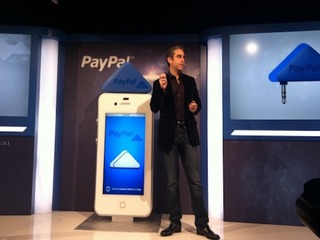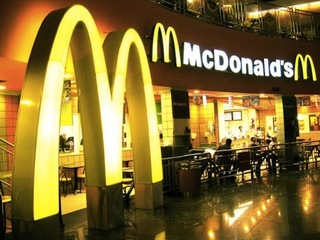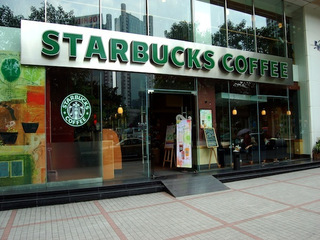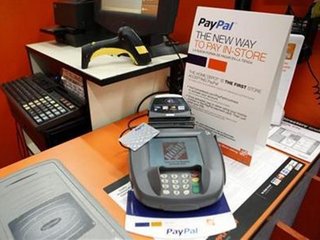Oxford Cancer Analytics raises $11M to detect lung cancer via a blood test
OXcan combines proteomics and artificial intelligence for early detection
Read more...
In a conference call early Wednesday morning, PayPal VP of Retail Don Kingsborough shed some more light on the new deal between PayPal and Discover. There’s good news and there’s bad news.
First the bad news: you don’t get to throw away your wallet right away. While PayPal will gain access to Discover’s network of seven million merchants in the second quarter of 2013, customers will still have to pay with the PayPal card.
“There are going to be a couple of phases,” said Kingsborough. “In the first phase we’ll be issuing a card, and then adding mobile and online as part of it in initial phase. It’s our belief that some of these newer technologies like PayPal Here will evolve and the cards will become less important, but for now, the card will be a default. To integrate into the lives of consumers, you have to be wherever the consumer wants to shop. That’s what gets adoption. Issuing a card is what gets you that integration and then you can move into these other technologies. The card is an extension of our network into the physical world.”
The good news is that customers shopping offline will be able to use all of those other PayPal features we’ve come to know and love, like Bill Me Later.
As for why they chose to partner with Discover, Kingsborough said that PayPal did its due diligence and researched all of the other major credit cards, but went with Discover because PayPal has had an 11-year relationship with them. There’s also the reality that Discover doesn’t have quite as much penetration into the U.S. market compared with some of the other cards, like Visa and MasterCard. Partnering with PayPal will help Discover push ahead and close the gap.
Kingsborough said that PayPal will launch a campaign in April 2013 to build awareness of PayPal’s offline presence, but he was reticent to reveal too many details. The obvious problem is that consumers don’t really have any reason to use another card. If they’re going to open up their wallet, they can pull out their Visa, MasterCard, Discover card, or PayPal card. Kingsborough said that specific retailers might offer rewards for using PayPal because they want data.
“Retailers want more information on their customers. They want to know who their customer is when they walk through the door. To do that, you need ubiquity,” said Kingsborough.
The word “ubiquity” has been tossed around a lot by PayPal lately. In the digital wallet race to the top, fragmentation is going to be a problem. Consumers aren’t going to adopt a digital wallet if they don’t know where and how they can use it. That’s why the Square/Starbucks partnership was such a huge deal.
This partnership dwarfs Square’s recently announced partnership with Starbucks, which will bring mobile payments to the coffee chain’s 7,000 U.S. stores. The PayPal/Discover partnership will extend the potential for mobile payments via PayPal to some seven million U.S. merchants who currently accept Discover card payments. And if all goes well, the new partnership could extend to the millions of merchants around the world who accept Discover.
PayPal currently has over 113 million active users worldwide, some 50 million of whom are in the U.S.
Discover has been making a lot of headway in the mobile payments game this year. Last week, Discover announced a deal with Google that would allow Discover customers to save their card information to Google Wallet. And earlier this year, Discover partnered with BillToMobile to offer carrier billing to Discover’s e-commerce merchants.
And while Discover has been building up its mobile base, PayPal has been working on building up its offline base. PayPal has partnered with a handful of brick-and-mortar stores to bring in-store checkout to its customers, including Home Depot, Hollister, and Abercrombie & Fitch.
Image source: Gigaom
OXcan combines proteomics and artificial intelligence for early detection
Read more...Nearly $265B in claims are denied every year because of the way they're coded
Read more...Most expect to see revenue rise, while also embracing technologies like generative AI
Read more...


